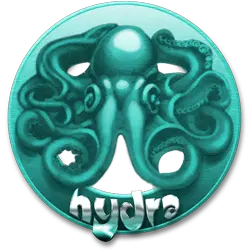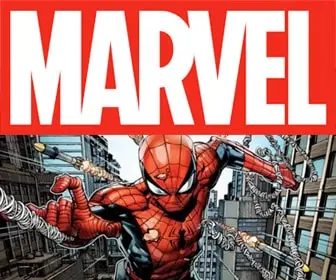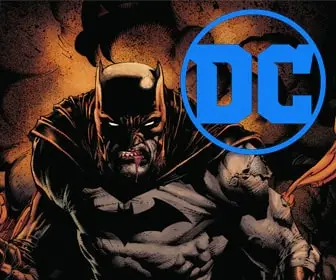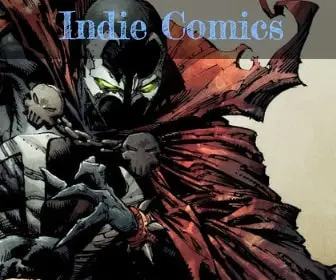
The Genius of Robert Kirkman: Changing the Face of Comics
For anyone immersed in the world of comics, the name Robert Kirkman is synonymous with groundbreaking storytelling and an innovative approach to the comic book industry. From his early self-published works to the creation of the global phenomenon ‘The Walking Dead,’ Kirkman has continually defied expectations and paved the way for a new era of independent comics.
The Early Years
Robert Kirkman’s journey into the world of comics began with a small self-publishing company he co-founded called Funk-O-Tron. This venture was started in the early 2000s when Kirkman was just in his early twenties. Funk-O-Tron was the birthplace of some of his early works, the most notable being “Battle Pope,” a series that Kirkman co-created with artist Tony Moore. “Battle Pope” was an irreverent and humorous take on religious themes, featuring a superpowered Pope tasked with saving the world. This series showcased Kirkman’s ability to combine dark themes with a sense of humor, a style that would become a hallmark of his later works.
Funk-O-Tron was a small operation, and during its early days, it struggled to gain traction in a market dominated by big players like Marvel and DC Comics. Despite these challenges, Kirkman and his team persisted, producing several issues of “Battle Pope” and other titles. It was during this time that Kirkman honed his craft as a writer and began to establish himself in the comic book community.
While Funk-O-Tron eventually faded into obscurity, it served as a launching pad for Kirkman’s career. The experience he gained while working on “Battle Pope” and other Funk-O-Tron titles provided a foundation for his later success with series like “The Walking Dead” and “Invincible.” Ultimately, Funk-O-Tron was a crucial stepping stone in Kirkman’s journey from unknown writer to one of the most influential creators in the comic book industry.
The Breakthrough with ‘The Walking Dead’
Robert Kirkman’s “The Walking Dead” began as a comic book series published by Image Comics in October 2003. The series was created by Kirkman with artist Tony Moore, who was later replaced by Charlie Adlard from the seventh issue onward. The inspiration for “The Walking Dead” came from Kirkman’s desire to explore what happened to the characters in a zombie movie after the credits rolled. He was intrigued by the idea of following the characters’ journey in a world overtaken by zombies and witnessing how the experience would change them over time. This novel approach, focusing more on the human drama and character development rather than just the horror and action elements, set “The Walking Dead” apart from other zombie narratives at the time.
The series quickly gained a devoted following and critical acclaim for its stark, realistic portrayal of a post-apocalyptic world and the complexities of human nature. Kirkman used the series to explore themes such as survival, morality, and the capacity for human beings to adapt and persevere in the face of unimaginable adversity. This depth and complexity, combined with gripping storytelling and well-developed characters, propelled “The Walking Dead” from a niche comic book series to a cultural phenomenon.
The success of the comic book series eventually led to a television adaptation, which premiered on AMC in 2010. The show, also titled “The Walking Dead,” became a massive hit, attracting millions of viewers and spawning multiple spin-offs and merchandise. Robert Kirkman served as an executive producer and writer for the series, ensuring that the show remained true to the spirit of the original comic book while also exploring new narrative directions. The explosion of the television series into mainstream popular culture cemented “The Walking Dead” as one of the most influential and successful zombie narratives of all time and solidified Robert Kirkman’s status as a master storyteller.
Creator-Owned Success
Robert Kirkman’s “Invincible” is another landmark series that showcases his storytelling prowess. Published by Image Comics in January 2003, a few months before “The Walking Dead” debuted, “Invincible” is a superhero comic that subverts traditional superhero tropes and narratives. The series follows Mark Grayson, a typical teenager whose father is the world’s most powerful superhero. Mark develops powers of his own and takes on the superhero mantle as “Invincible”. However, as Mark begins his journey as a hero, he quickly realizes that the world of superheroes is far more complex and morally ambiguous than he ever imagined. Kirkman, along with artist Cory Walker and later, Ryan Ottley, crafted a series that blended traditional superhero action with mature themes, dark humor, and a healthy dose of violence. The result was a series that resonated with fans, attracting a dedicated following and critical acclaim.
The success of both “The Walking Dead” and “Invincible” represented a significant shift in the comic book industry towards creator-owned properties. For much of the industry’s history, the most popular and successful comics were typically owned by major publishers like Marvel and DC. However, the success of Kirkman’s series, along with other creator-owned titles published by Image Comics and other independent publishers, proved that creator-owned comics could achieve mainstream success and have a significant cultural impact. This shift empowered other creators to pursue their own independent projects, leading to a renaissance of innovative and diverse storytelling in the comic book industry.
Kirkman’s success with “The Walking Dead” and “Invincible” also helped establish him as a champion of creator-owned comics. He has been an outspoken advocate for creators’ rights and has used his platform to encourage other creators to pursue their own independent projects. This advocacy, combined with his success as a writer and creator, has made Robert Kirkman one of the most influential figures in the modern comic book industry. His work has inspired a new generation of creators and has contributed to a broader cultural acceptance and appreciation of comic books as a medium for sophisticated, impactful storytelling.
Influences and Storytelling Style
Robert Kirkman’s influences are vast and varied, but one of the most prominent is the work of comic book legend, George A. Romero, particularly his Living Dead series. This is evident in “The Walking Dead,” which takes inspiration from the classic zombie films but evolves the concept into a character-driven narrative focused on human survival and societal breakdown rather than the zombies themselves. Additionally, Kirkman has cited Erik Larsen’s “Savage Dragon” and other Image Comics titles as influences, which inspired him to create character-driven stories with a focus on realism despite the fantastical elements. Kirkman has often talked about his love for character-driven stories and has mentioned how television shows like “The Sopranos” and “Lost” influenced his storytelling. He admired how these shows delved deeply into their characters’ psyches, an approach he would adopt in his own work.
Kirkman’s storytelling style is often characterized by its focus on character development and its willingness to subvert traditional genre conventions. His works often start with familiar genre tropes – be it superhero comics or zombie apocalypse narratives – but then take unexpected turns that challenge the reader’s expectations. For example, in “The Walking Dead,” the zombies serve as a backdrop to explore human nature and the struggle to maintain one’s humanity in a world that has lost all semblance of order. Similarly, “Invincible” starts as a conventional superhero story but quickly evolves into a narrative that explores the complexities and moral ambiguities of heroism. His stories often delve into dark themes, and he is not afraid to depict violence and brutality if it serves the narrative. However, despite the dark themes, Kirkman’s work is often imbued with a sense of hope and a belief in the resilience of the human spirit.
Furthermore, Kirkman is known for his collaborative approach to creating comics. He has a history of working closely with artists and values their input in the storytelling process. This collaborative spirit is evident in his long-standing partnerships with artists like Charlie Adlard, Ryan Ottley, and Cory Walker. Kirkman believes that comics are a visual medium and that the artist’s role is as important as the writer’s in bringing a story to life. This approach has resulted in some of the most memorable and impactful moments in modern comics, as the artists he works with are given the freedom to express their creativity and contribute to the storytelling process.
Collectors
Some of Robert Kirkman’s most popular and collected works include:
- The Walking Dead #1: This is the issue that started it all, introducing readers to Rick Grimes and the world of the Walking Dead. It is highly sought after by collectors, particularly because of its low initial print run and the massive popularity of the series.
- Invincible #1: This is the first issue of Kirkman’s superhero series, “Invincible”. Like “The Walking Dead #1”, its initial print run was relatively low, making it a rare and sought-after issue for collectors.
- Ultimate X-Men #66: While not as rare as the first issues of “The Walking Dead” or “Invincible”, this is the first issue of Kirkman’s run on “Ultimate X-Men”, making it a popular issue for fans of his work and the X-Men.
- The Walking Dead #19: This issue marks the first appearance of Michonne, one of the series’ most popular characters, making it a highly sought-after issue for collectors.
- Marvel Zombies #1: This series, which features zombified versions of Marvel’s most popular characters, was a surprise hit and has become a cult favorite among fans.
Robert Kirkman’s journey from self-publishing to global success is nothing short of inspirational. His commitment to creator-owned properties and his unique storytelling style have not only changed the face of comics but also inspired a new generation of creators. Whether you are a fan of ‘The Walking Dead,’ ‘Invincible,’ or any of his other works, there is no denying the impact and legacy of Robert Kirkman.














